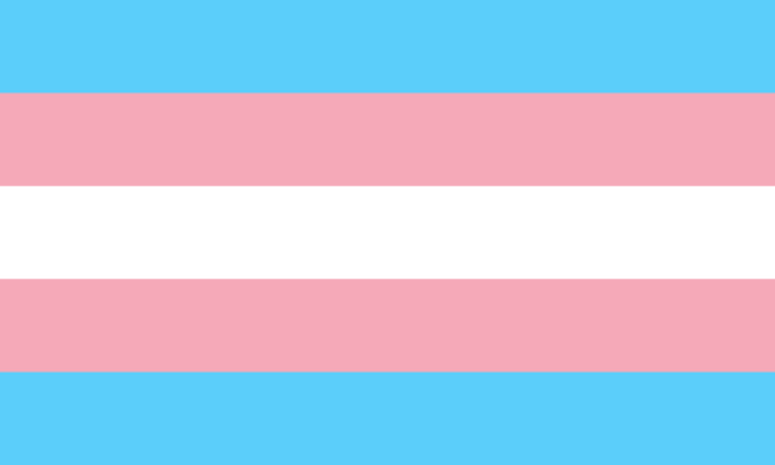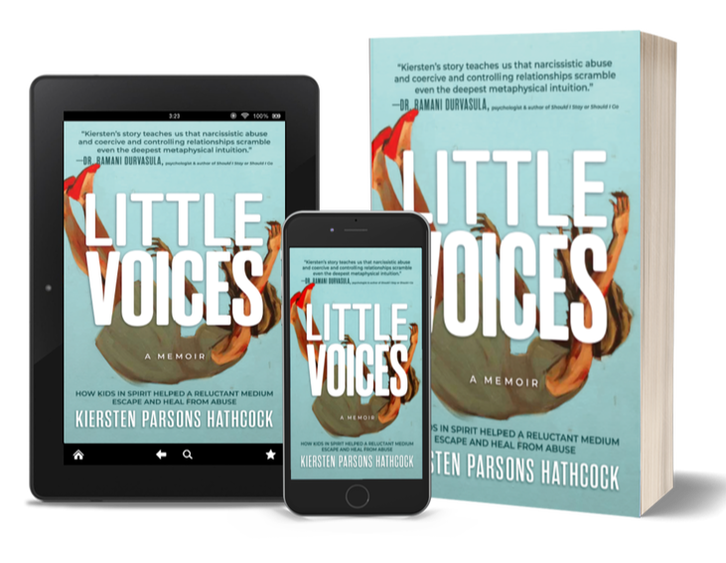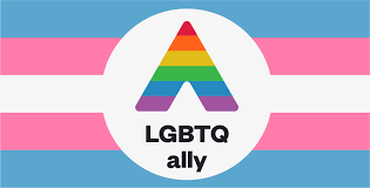|
“They better not think they can get an operation to change genders on MY dime!” “It’s not right. You are either born a girl or a boy.” “It goes against what God wants.” “My kid wanted to be a puppy when he was five. You think that’s OK, too?” Sigh. Sadly, I’ve heard all of these things and more over the last year and a half since Noah came to us with his realization. At that time, he realized he had been dealing with gender dysphoria for many years. Ten years, to be exact. Now, as my 21-year-old trans daughter, I’m proud to say that Noah, who has now chosen the name Natalie, bravely sought help to become the gender with whom she identifies. *Noah came to us after I published this to let us know she has chosen Nat, as in Natalie, as her name. Through Natalie's journey, I’ve had the privilege to learn about gender in ways I never had before I turned 45. First, let’s define gender dysphoria as “the psychological distress that many transgender people experience because their assigned gender doesn’t match the way they see themselves.” Dr. Murat Altinay, Cleveland Clinic) Now, what should you consider if you know little to none about being transgender? Here are 4 things I've learned that might help you: 1. Gender develops in the brain From the Cleveland Clinic article, Research on the Transgender Brain: What You Should Know: “When we look at the transgender brain, we see that the brain resembles the gender that the person identifies as,” Dr. Altinay of Cleveland Clinic says. For example, a person who is born with a penis but ends up identifying as a female often actually has some of the structural characteristics of a “female” brain. Though these differences in brain structure and function are important markers for gender determination, it isn’t always as simple as male or female. Some research shows the brains of transgender people are somewhere in between, sharing characteristics of both male and female brains, Dr. Altinay says. This is consistent with the growing understanding that gender exists on a spectrum, with people identifying not only as male or female but also as genderqueer, genderfluid or nonbinary. These terms refer to gender identities that incorporate a variety of gender characteristics.” 2. Many kids who are transgender experience devastating anxiety and depression starting in puberty. This was the case with Natalie. Debilitating generalized anxiety, social anxiety, and subsequent depression came on strong at age 10. In fact, we noticed sudden onset stuttering when Noah (now Natalie) was in 2nd grade which was a bi-product of the anxiety. In light of that, we did everything we could to help quell the anxiety, but nothing seemed to really make a dent in it. Some kids figure out they are dealing with gender dysphoria at a young age; others do not until later in life. Neither is right or wrong—it simply is. 3. Anyone considering changing genders, whether they are thinking about surgery or not, has to consult with a doctor in order to get access to hormone therapy. Care and surgery are NOT on anyone else’s dime. In most cases, you need a “gender dysphoria” diagnosis in order to get insurance coverage for healthcare. In addition, talk therapy is highly recommended as well. There are a lot of hoops to jump through when you recognize you are transgender. Hormone therapy can take roughly two to three years to help change body chemistry to the gender with whom you identify. 4. Just because your religion tells you that being transgender is wrong doesn’t mean that it is true. As mentioned above in number one, research is showing that gender develops in the brain. This is nothing new; many folks from generations past feared coming out as transgender due to the social climate of the time. Even today, hateful, shaming messages damning the transgender community are commonplace. From a spiritual perspective, as an intuitive medium who works with law enforcement officers helping solve murder and abduction cases, I can personally attest to the fact that those who have passed on are not judging those who change genders. Quite the opposite, actually. Those who are experiencing a transgender journey are highly evolved individuals who are shining a light on the need for more love of self and love of others, regardless of their gender/race/ethnicity, etc. I sincerely hope what I've shared has given you insight into what to consider when you're pondering gender. I'm extremely grateful to have such an amazing teacher—one whom I'll continue learning from (and loving) for a lifetime, and beyond.
0 Comments
When I was a kid I saw my dad cry once, when his grandmother died. He was a strong father that could throw a pop fly up into the clouds, handle his liquor, close a deal, and entertain the “unlikable.” I never witnessed anyone not liking him, never heard a bad word spoken about him. He was someone I feared if I broke a rule and went against, but I was never scared of him. He gave hugs and kisses. At times, I can remember discussions of money and finance in the family household taking place, but I was never fearful for our family’s well-being. I trusted his leadership of our house. I can’t think of anything he did wrong, any reason to blame him—anything to tell a therapist. He was and is a good father. Now, as a father, I sit here and think about how many of the positive traits I saw in my dad don’t exactly align with mine. My son has seen me cry countless times—with “Toy Story 3” playing the agitator in the most outlandish epic family moment. My son has seen me act “weird” with alcohol. He has seen me lose jobs through firings and layoffs. He has seen people not liking me (even hating me on social media) and the emotional weight it played on me. He has seen me risk it financially and he’s probably questioned whether to even ask for 5 dollars to buy a video game if it put us in the slightest financial risk. But, perhaps the worse was when he saw me lose his mom. In my mind, when I “lost” Kiersten, I wanted to present a strength to him, but to also let him know I was hurting. That it was okay to hurt. That eventually, I was going to be fine. But, the reality was he too was dealing with it on his terms. He didn’t seem to necessarily need me to explain where I was in my thoughts, he didn’t need to see my cry, or get angry—he just wanted a dad to be around when he wanted a dad to be around. So, except for a few slip-ups when I became emotional in front of him, we stayed off the topic of “mom” for a majority of our three-year separation. In my mind, I also had a role I envisioned him playing. He would look at me with great awe. He saw my emotional strength and clarity of vision, he excused my momentary lapses of misplaced emotional outbursts, he prayed for me at night that “dad would win back mom.” In other words, I envisioned a “Disney kid.” And, every time I mistakenly used that Disney frame of reference he fell short, but not because he did anything wrong. He was doing everything right for himself. He was finding his own balance to all of this AND his side as well included a woman he loved dearly. Is/was avoidance the best policy? Again, I’m no expert in what works for others but here is what I know. My son knew what I thought of his mother, he knew I still loved her. He knew I was sad. So, if he knew those things to be true for me why bother reminding him? So, I choose to focus on the “fun.” I separated my fatherhood from husbandry. I opted to play more than preach and laugh more than teach. My one stipulation I told him was, “I’ve already been to school and I graduated. I’m not interested in doing school again. I ask that you take care of that for yourself. I’ve got the rest covered.” In other words, I asked him to be responsible for the areas in his life that he could affect. I just wanted him to know that I had “the house stuff” under control. I don’t believe that I ever truly convinced him to not worry, but I made it a point to identify where I didn’t need his help. We found common ground in sharing movies together and (without saying) staying away from movies that hit too close to our home life. Years later we would learn what those movies were and laugh that we had the same idea and sensibility to avoid them. I also opted to not “kiss and tell” about any dating I was doing. I never spoke about any prospects for any long-term relationships either. I never had women stay the night in my house when he (or my daughter) were present. While he knew I would go out, I never meshed the two worlds. I learned quickly that by him saying, “Want to watch a movie tonight?” meant that he wanted some father time. It was an arm around the shoulder moment that was good for both of us. Just like I did, I’m sure there will come a day when he (as a dad or husband) look at what I did and purposefully chose a different response, reaction, or even movie for the moment, and that’s okay. I won’t take it personal, it will be his story. -- Scott Hathcock |
Categories
All
Archives
June 2024
|
|
All rights reserved. 2022.
|



 RSS Feed
RSS Feed



